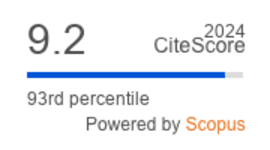Development of a Semiconductor Sequencing-based Panel for Screening Individuals with Lynch Syndrome
DOI:
https://doi.org/10.36877/pmmb.a0000274Abstract
Lynch syndrome is a genetic disorder associated with mutations in mismatch repair (MMR) genes that are linked to the development of colorectal cancer. Individuals with this condition have a lifetime risk of developing cancer at around 20% to 65%. Due to the
autosomal dominant inheritance pattern, close biological relatives are also at high risk. Early detection of CRC may lead to better health outcomes and considerable savings in treatment costs. Therefore, our objective is to develop a rapid screening method for LS. We designed an Ion Ampliseq™ Custom Panel, which includes four MMR genes associated with LS (MLH1, MLH2, MSH6, and PSM2), a downstream gene (EPCAM), and a gene that indicates sporadic CRC (BRAF) for sequencing on the Ion Torrent PGM™ sequencer. Sequencing was performed on 16 DNA samples derived from various stages of CRC. The sensitivity and specificity of the identified mutations were determined by sequencing the serially diluted DNA from two human cancer cell lines, HCT 116 and LN-18. An average of 92 % of reads were mapped to the target region with 98 % uniformity. There was no amplicons dropout across all samples, and 58 variants were chosen for validation in 19 samples using MassARRAY and Sanger sequencing. We achieved 87% specificity, 97% accuracy, and 100% sensitivity for detecting variants at an allele frequency of more than 13% using this LS gene panel. With the development of this method, LS CRC can be detected at an early stage using this rapid and sensitive approach.
Downloads
Published
How to Cite
Issue
Section
License

This work is licensed under a Creative Commons Attribution-NonCommercial 4.0 International License.
Author(s) shall retain the copyright of their work and grant the Journal/Publisher right for the first publication with the work simultaneously licensed under:
Creative Commons Attribution-NonCommercial 4.0 International (CC BY-NC 4.0). This license allows for the copying, distribution and transmission of the work, provided the correct attribution of the original creator is stated. Adaptation and remixing are also permitted.

This broad license intends to facilitate free access to, as well as the unrestricted reuse of, original works of all types for non-commercial purposes.
The author(s) permits HH Publisher to publish this article that has not been submitted elsewhere.



.png)

.jpg)
